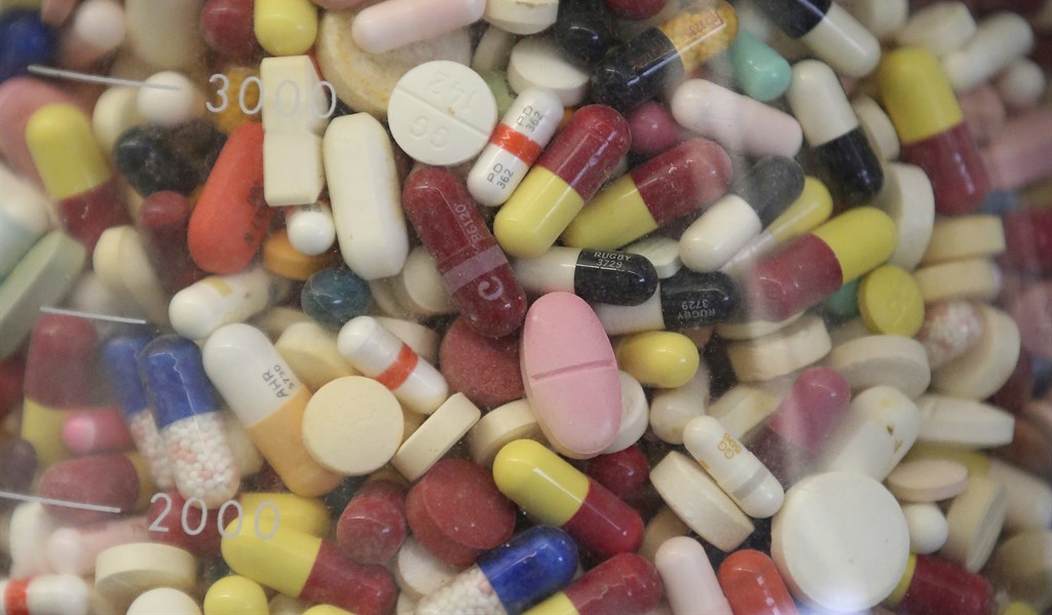While the COVID-19 vaccine may be the talk of the town in Washington – and available at no direct cost to any and all Americans who want it – that has not stopped people across the country from feeling the squeeze of the price of prescription medications for other maladies. Surveys routinely show that roughly four out of five Americans find the cost of prescription medicine “unreasonable.” While this might not be the hottest health-related topic in the news right now, it is a big issue in a nation where more than half of adults are currently taking some form of prescribed medication.
The Biden administration and Democratic congressional leadership attempted to address this problem with their massive drug pricing package entitled, “The Elijah E. Cummings Lower Drug Costs Now Act,” also known as H.R. 3. The bill would fail to provide better health outcomes for the American people. Ultimately, it would also fail to lower the cost of prescription medicine. Due to widespread opposition, the bill has not come close to becoming law.
However, the administration has renewed its push for this package to be enacted by Congress. President Biden recently expressed his support for government “negotiation” of prescription drug prices in Medicare Part B and D. This is one of the many provisions of H.R. 3 that would cause a whole host of issues for the American people when it comes to acquiring the medications they need. The plan is to include these provisions in the $3.5 trillion reconciliation package working its way through Congress now.
Though described as negotiation between government officials and pharmaceutical companies, this policy is anything but fair. Under the proposed system, drug makers would be forced to list their medicines under a certain benchmark price. That benchmark is determined by aggregating the prices of similar medications in other developed nations. This is already skewed, as these reference nations implement price controls and harsh regulations on the medicines in question. The only reason their prices are often lower is because of reduced access and investment and other socialist government mandates. And saving money won’t save your life if you don’t get the treatment in time.
Recommended
If drug makers fail to lower drug prices voluntarily, because they don’t want to import the healthcare investment and access problems of overseas nations, the negotiation with the government would commence. The drug makers have to come in with a proposal that is no more than 120 percent of the average international market price of the drug. If they do not, the government walks away from the table and enforces a steep tax on the drug maker until they comply. No negotiation can be had in good faith when one of the parties has all the leverage. Indeed, the governments are defined by their monopoly on force, thus they cannot fairly be part of any negotiation of this kind.
As if this were not bad enough, an additional tax is also expected to be included in the reconciliation bill. This “inflation rebate” would penalize drug makers if they raise the price of their products faster than inflation. These rebates would not go to patients. They would be redirected to the Medicare trust fund. Further, this plan would actually incentivize high list prices of prescription medication. Drug makers, when introducing a new medicine, would artificially inflate the list price to ensure they don’t run into issues with the inflation penalty down the line. Regardless of whether they need to, with this tax looming, drug makers would have to hedge their bets in this manner.
More troublesome is that it is expected the reconciliation will delay the implementation of a rule regarding pharmacy benefit managers (PBM), a rule that would help patients and families. This PBM rule states that any discounts or markdowns received on prescription medication get passed on to patients at the pharmacy counter, instead of pocketed by the PBM while the drug is sold at the previous high list price.
While Americans are rightly focused on the government’s out-of-control spending habits and the coronavirus pandemic, the partisan prescription drug policy agenda cannot be allowed to fly under the radar. The Biden administration and congressional Democrats are hoping that their plan – too unpopular to pass the first time around – will have a better chance at success if tucked inside an even more massive $3.5 trillion bill. Instead, congressional leaders need to demand transparency and make an honest attempt to lower drug prices and address this important issue.
Daniel Savickas is government affairs manager for the Taxpayers Protection Alliance.

























Join the conversation as a VIP Member